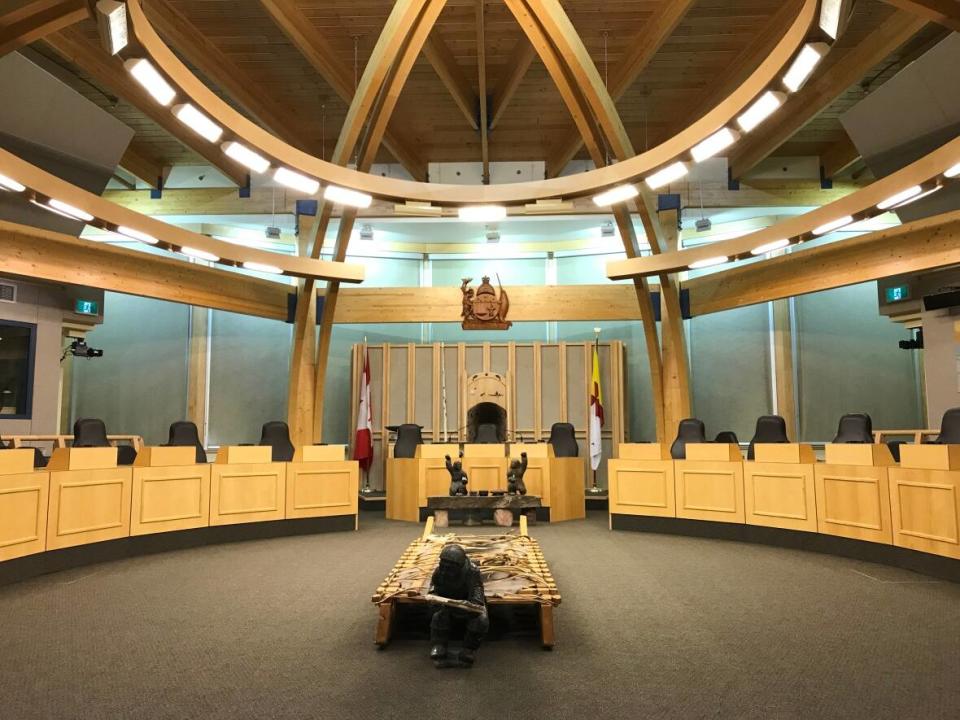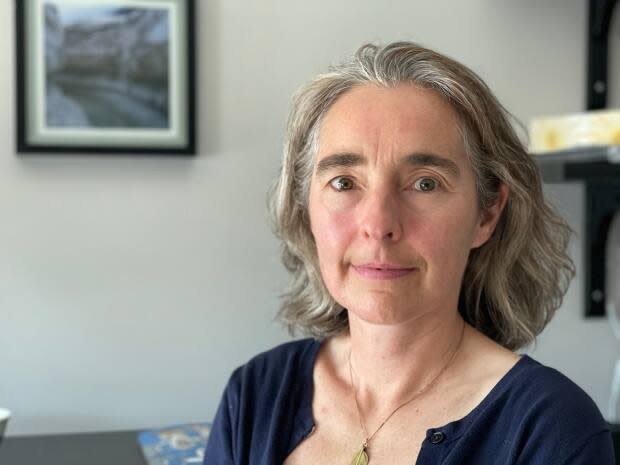Majority of Nunavut MLAs support access to abortion

Over half of Nunavt's MLA's support the right for all women in the territory to access abortions.
The U.S. Supreme Court struck down its 1973 Rove v. Wade decision in June, a ruling that for decades guaranteed a woman's right to ge an abortion across the United States. Since the decision Canadian politicians' views on the procedure have come under the spotlight.
CBC reached out to all 22 Nunavut MLAs by email and asked two questions on their stance on abortion. First, if they supported the right for all women in Nunavut to access an abortion, and second, if they felt the procedure was sufficient and accessible in their constituencies.
MLAs were given one week to respond to the questions, seven MLAs did not answer.
Support for abortion among Nunavut MLAs
Of the 15 MLAs that responded the majority believe that abortion services are accessible in their constituencies.
"Abortion access is actually fairly good, I would say, in Nunavut compared to some rural settings," said Dr. Madeleine Cole, a family physician in Nunavut.
Abortion Services in Nunavut
In Nunavut surgical and medical abortions— using the medication Mifegymiso— is available to anyone seeking to end a pregnancy. But how a person accesses these procedures depends on their community.
Surgical abortions are available in Iqaluit up to 13 weeks into pregnancy. Women living in communities in the Qikiqtani region would need to be flown to Iqaluit to access this service.
Women seeking abortions in the Kitikmeot would receive services at the Stanton Territorial Hospital in Yellowknife, while women in the Kiviliq would be sent for services in Winnipeg.
Medical abortions are available up to 10 weeks into pregnancy in Nunavut but are only available in Iqaluit, Cambridge Bay and Rankin Inlet.

Cole said medical abortion aren't currently available in remote communities because of the need for follow up appointments. She said that in very rare cases heavy bleeding caused by the pill may require patients to need blood transfusions, as well as ultrasounds, or blood tests to ensure the abortion worked.
These services are beyond the scope of most of Nunavut's community health care centres.
Cole said medical abortions could be available in smaller communities when physicians who are capable of providing the service are in the community.
"I think if women are incredibly well informed of the extremely remote risk of heavy bleeding and stuff, then yeah, we should offer it in small places," said Cole. "But we need our health centres to be open and staffed and have continuity of care, etc.."
Starting in August the Qikiqtani General Hospital will have full obstetrics and gynecology service, meaning women can receive abortion up to 18 weeks of pregnancy.
Previously, women after 13 weeks would need to be flown to Ottawa for services.
Travel and accommodations for the procedure from communities is covered for all Inuit beneficiaries through Non-Insured Health Benefits and medical travel.
Though Cole said abortion services are fairly accessible in Nunavut, she does see how leaving your community can be a barriers for some people.
"Some people, although they might not want to be pregnant, leaving home to go far away and leave their kids is enough to feel as though they don't have a choice," said Cole.
A 2019 report on Inuit women and reproductive health care services by Pauktuutit Inuit Women of Canada, says privacy for residents of small communities can cause a barrier for women seeking sexual health and reproductive services.
"I think to help women on this specific issue is the work that everyone could do to slightly destigmatize abortion," said Cole. "It should be private, really, but not shameful for something that is such a common experience for so many people."
Cole says that in Iqaluit there are between 60 to 80 surgical abortions done each year and between 30 and 40 abortions done through medical abortions.
Sheabout one in four have surgical abortion in their life.
Barriers to abortion

Gerri Sharpe, President of Pauktuutit Inuit Women of Canada, says though abortion services are available for everyone in Nunavut it doesn't mean it's readily accessible.
"Some of the unspoken expenses when it comes to abortions, women need to take time off to leave their communities, to leave their children, to leave their resources and an escort is also not approved for this type of procedure," said Sharpe. "As a result, they are going down there alone."
Because women in remote Nunavut communities need to be referred from their community health care centre to the closest city providing services they will need to explain their situation to multiple people.
"That's going to take multiple appointments, multiple people having to tell that same story over and over again," said Sharpe. "It can play on the mental health."
When women need to leave Nunavut to access abortion services, Sharpe says they'll face systemic barriers in a health care system that is not culturally sensitive to Inuit.
According to the Pauktuutit's report "many Inuit do not talk freely about sexuality, contraception, abortion and sterilization, making it difficult for women to explore their options and make informed decisions."
But, Sharpe says abortion isn't new to Inuit.
"This is something that Indigenous peoples, Inuit peoples have practiced for hundreds of years," said Sharpe. "So accessing that [abortion] should not be something that's so problematic."

